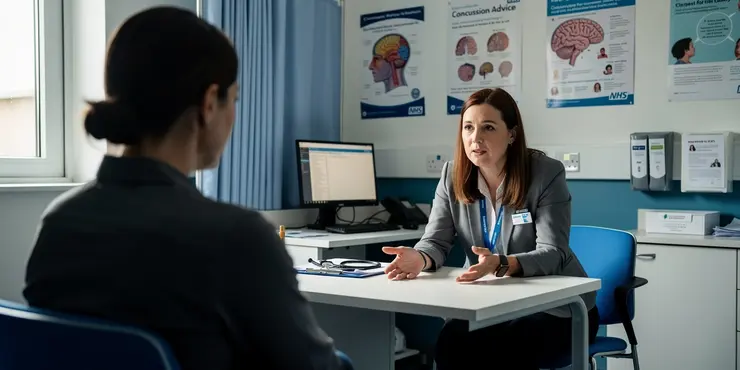
Find Help
More Items From Ergsy search
-
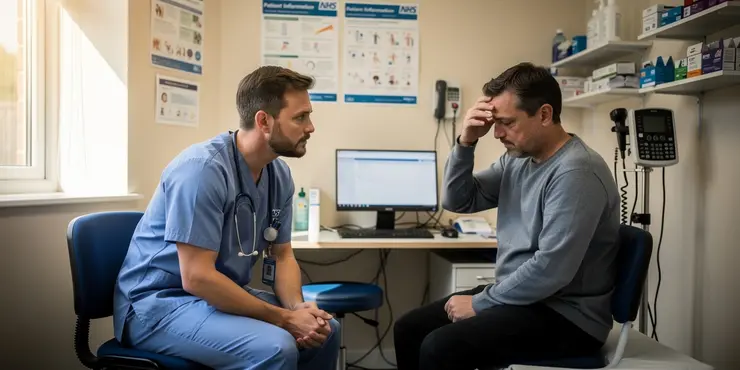
How is a concussion diagnosed?
Relevance: 100%
-
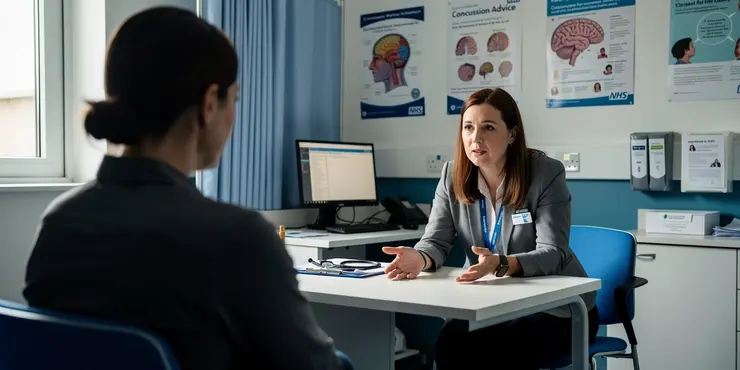
How is a concussion diagnosed?
Relevance: 97%
-
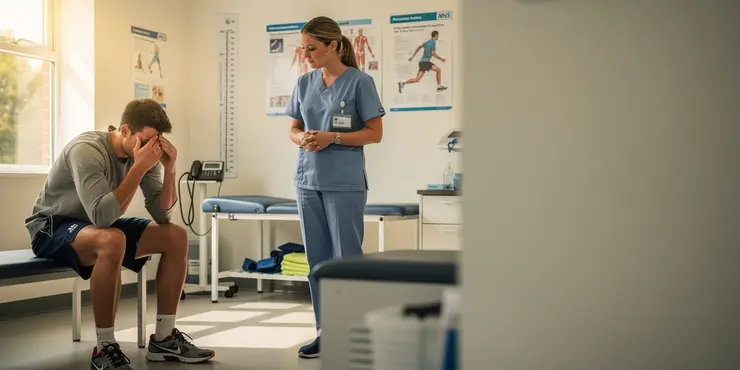
What is Concussion?
Relevance: 93%
-
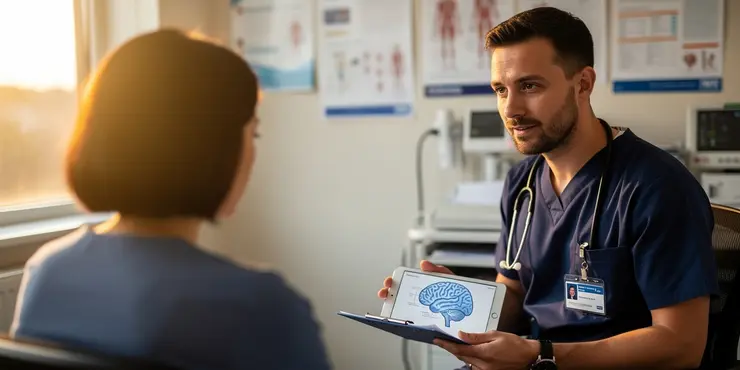
Is headache a symptom of a concussion?
Relevance: 87%
-
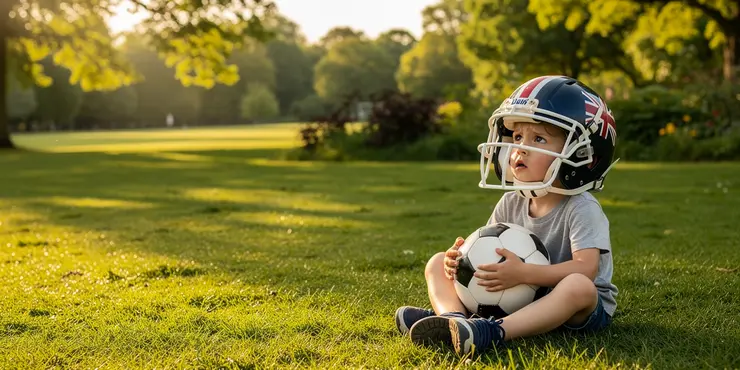
Are children more susceptible to concussions than adults?
Relevance: 84%
-
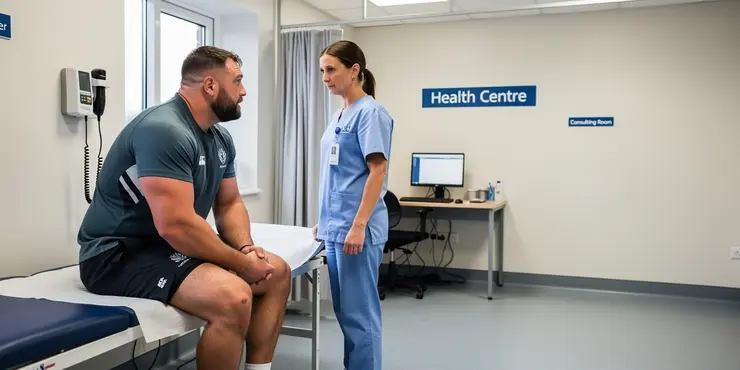
Are Concussions common in Rugby?
Relevance: 83%
-
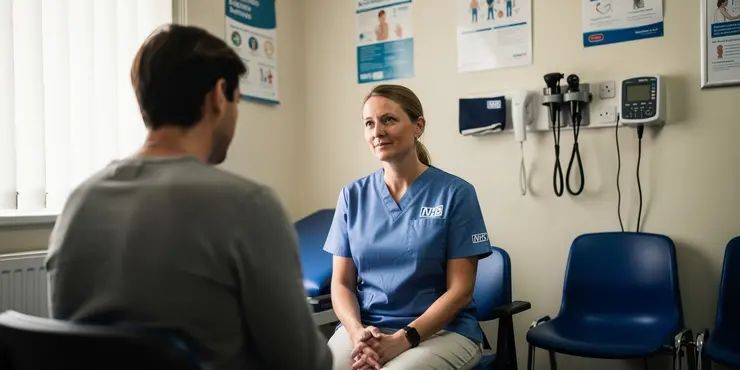
What are common symptoms of a concussion?
Relevance: 83%
-
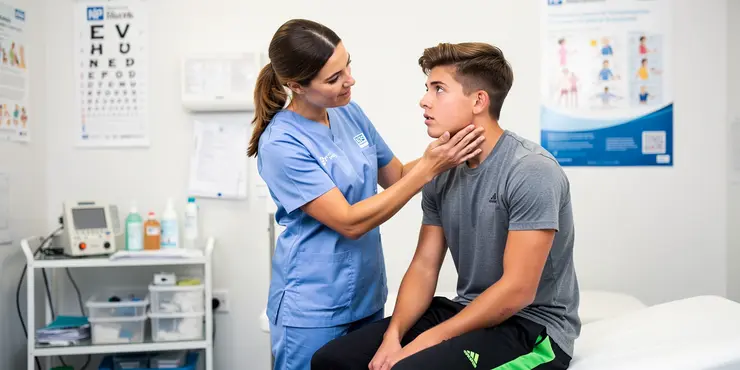
Can concussions occur without a direct blow to the head?
Relevance: 83%
-
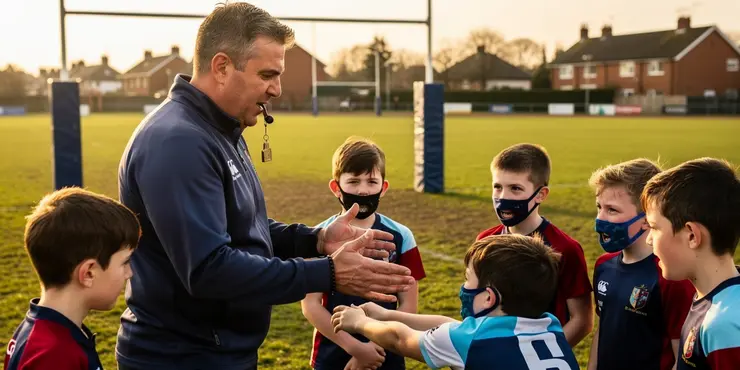
How can concussions be prevented in rugby?
Relevance: 82%
-
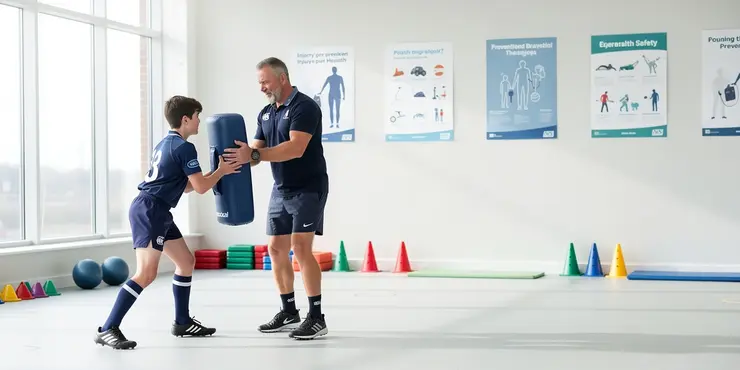
How can concussions be prevented?
Relevance: 80%
-
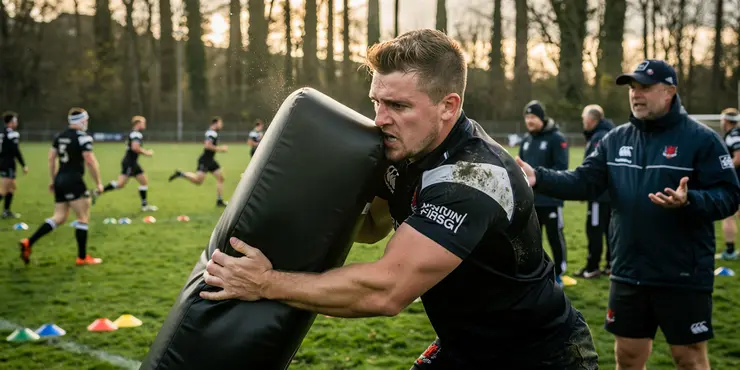
What causes concussions in rugby?
Relevance: 80%
-
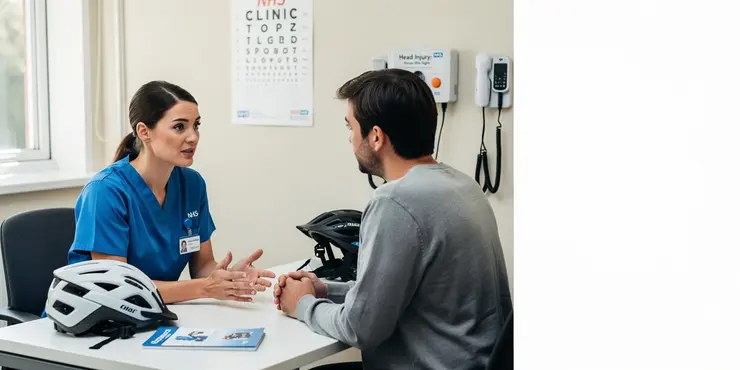
Is there any way to prevent concussions?
Relevance: 80%
-
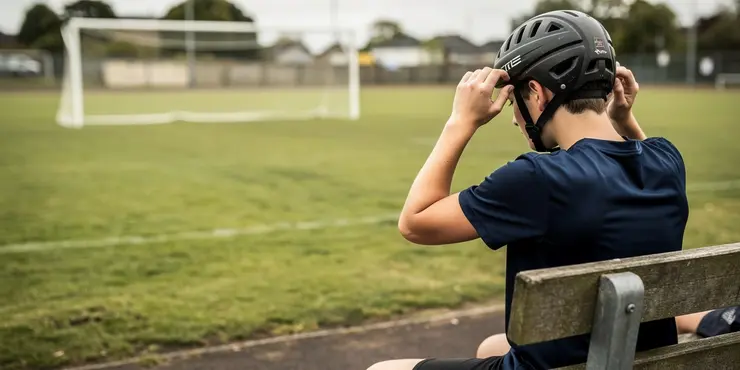
How can concussions be prevented?
Relevance: 80%
-
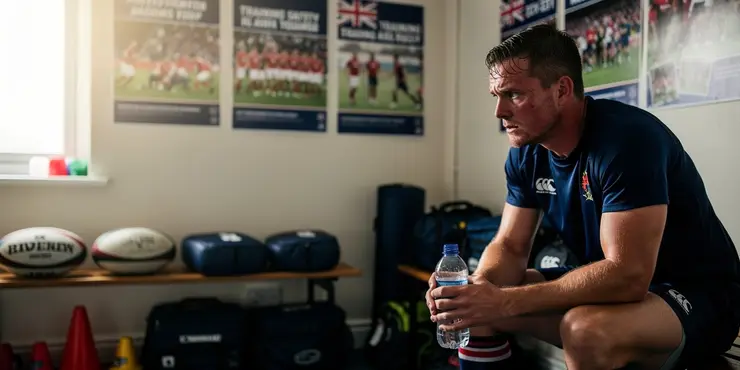
Is there a protocol for managing concussions in rugby?
Relevance: 79%
-
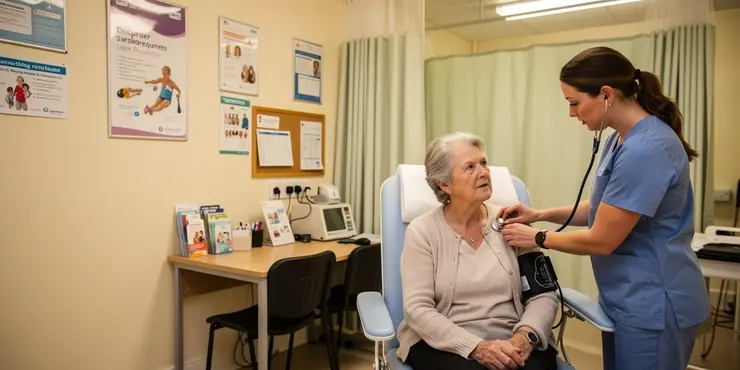
Is it safe to sleep after a concussion?
Relevance: 79%
-
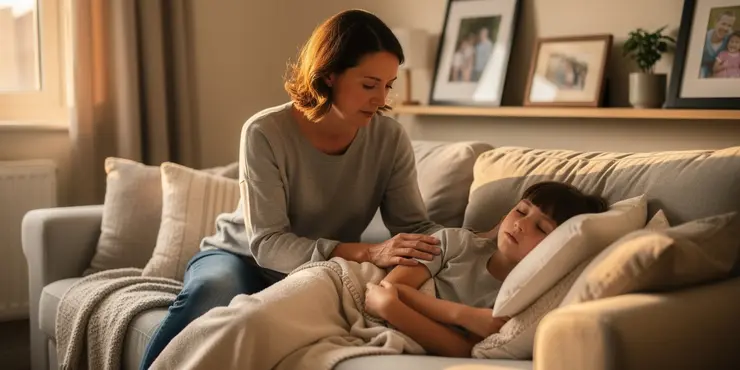
Is it safe to sleep after a concussion?
Relevance: 79%
-
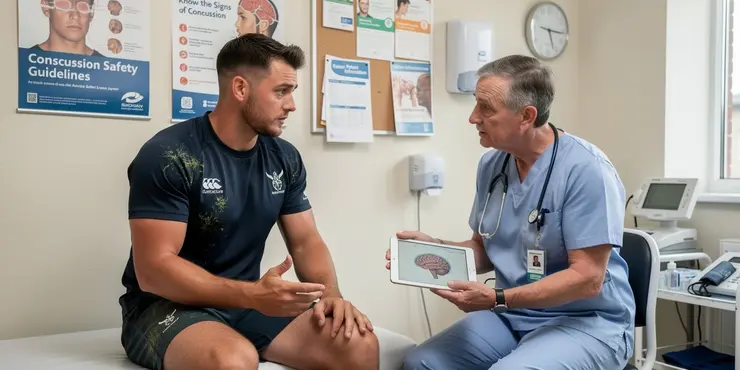
Are helmets required in rugby to prevent concussions?
Relevance: 77%
-
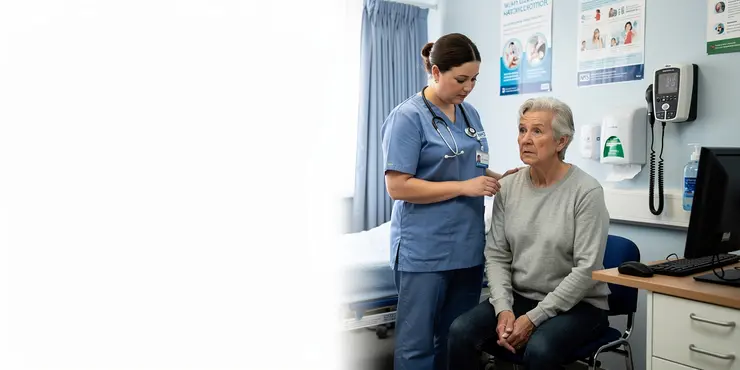
Can a concussion cause memory problems?
Relevance: 77%
-
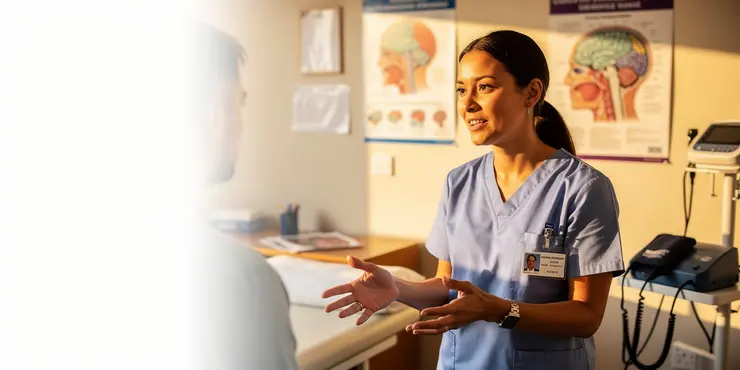
When is it safe to return to normal activities after a concussion?
Relevance: 76%
-
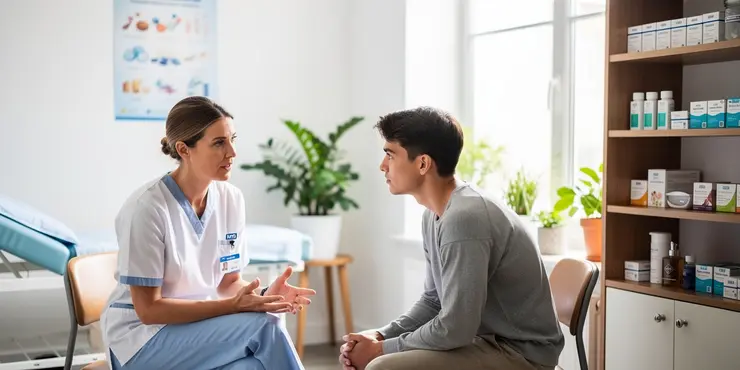
Can concussions lead to mental health issues?
Relevance: 75%
-
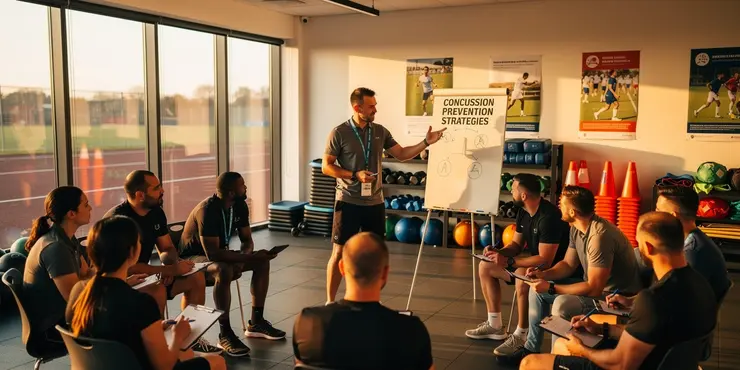
Is training available for coaches to help prevent concussions?
Relevance: 75%
-
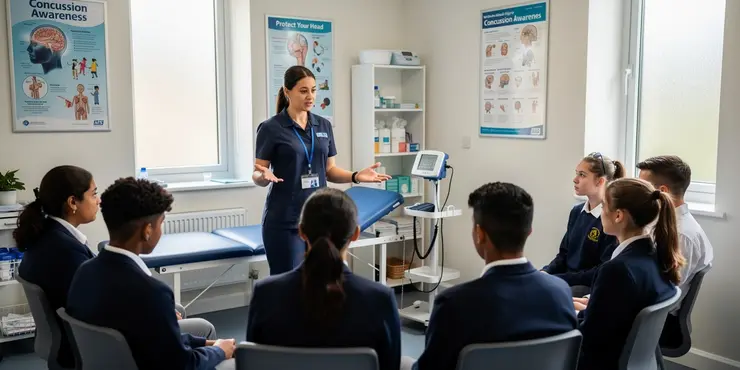
What role do schools play in managing concussions?
Relevance: 75%
-
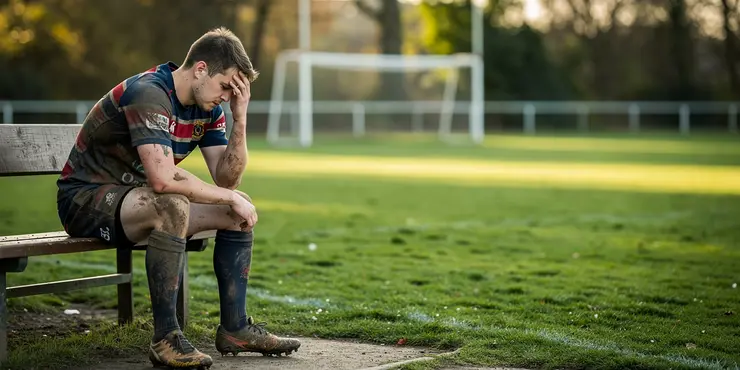
Can playing sports increase the risk of a concussion?
Relevance: 74%
-
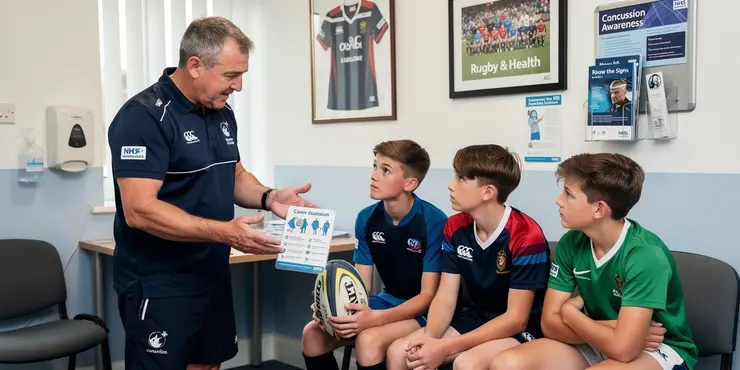
Is there a difference in concussion rates between amateur and professional rugby?
Relevance: 74%
-
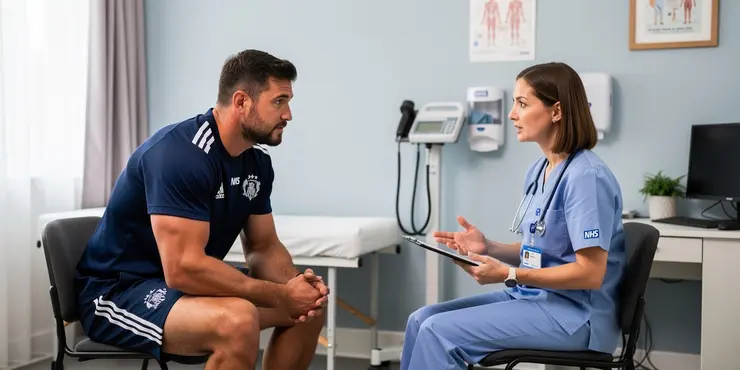
How do concussions impact long-term health in rugby players?
Relevance: 73%
-
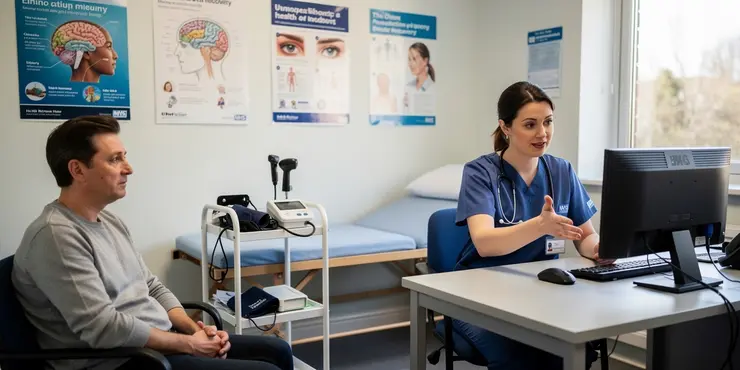
Should people with a concussion avoid screens and technology?
Relevance: 72%
-
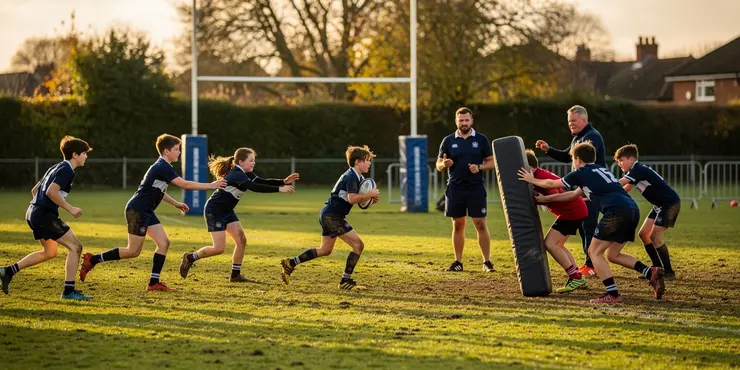
What age groups are most at risk for concussions in rugby?
Relevance: 72%
-
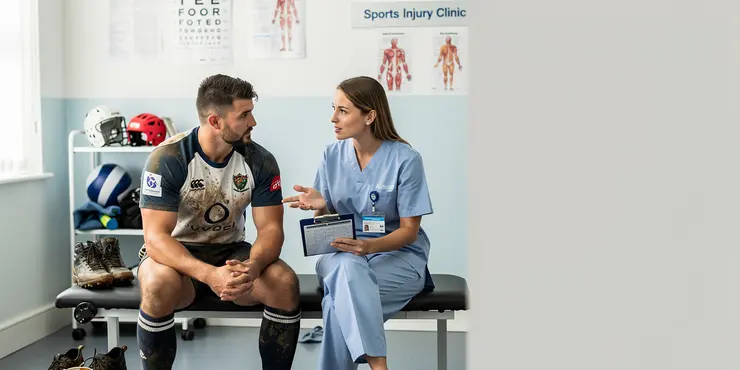
What support is available for rugby players who suffer concussions?
Relevance: 70%
-

When is it safe to return to normal activities after a concussion?
Relevance: 70%
-
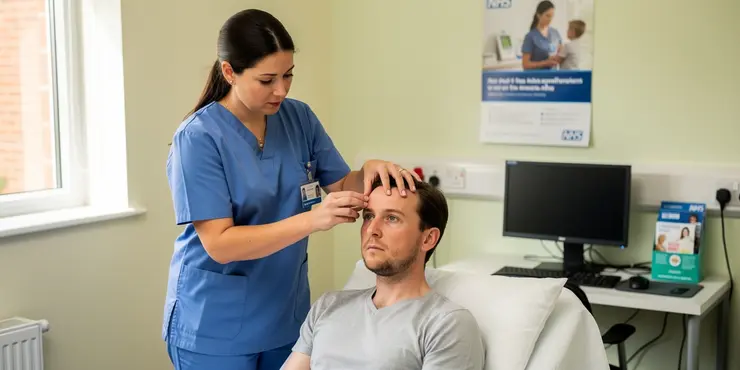
What immediate steps should be taken if someone has a concussion?
Relevance: 69%
-
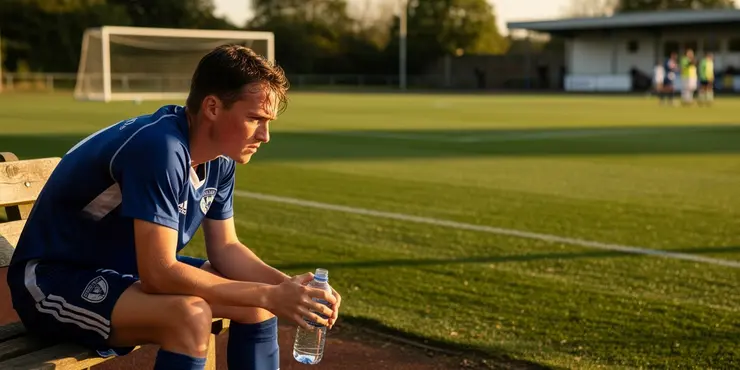
Can players return to play on the same day after a suspected concussion?
Relevance: 69%
-
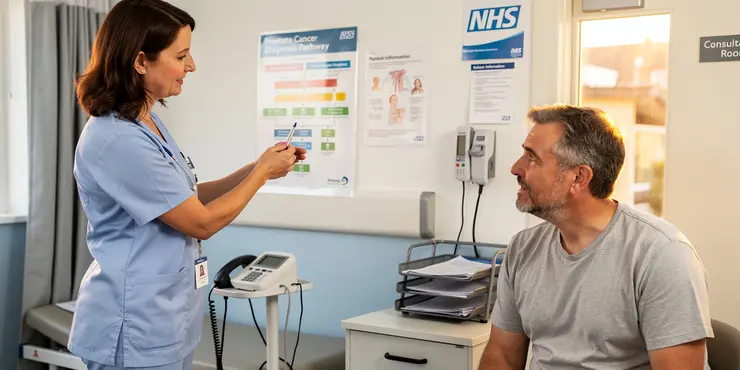
Prostate cancer diagnosis and tests
Relevance: 55%
-
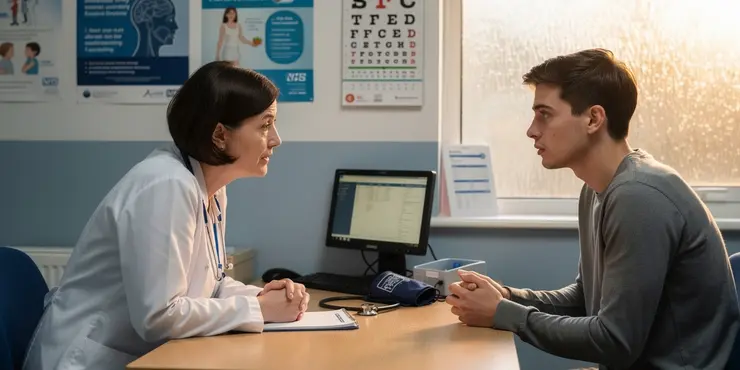
BSL - Diagnosis of panic disorder
Relevance: 54%
-
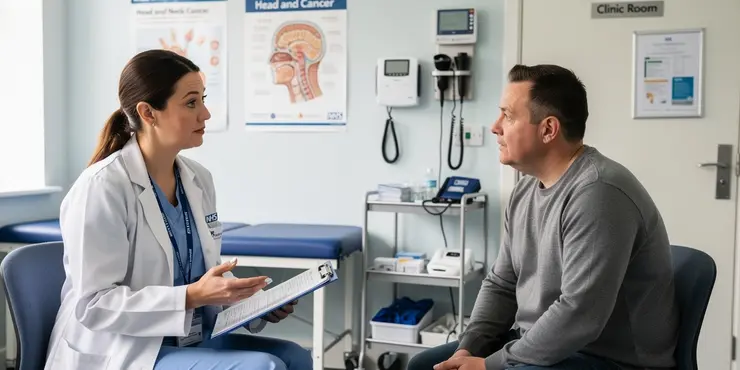
Head and Neck Cancer Diagnosis
Relevance: 54%
-
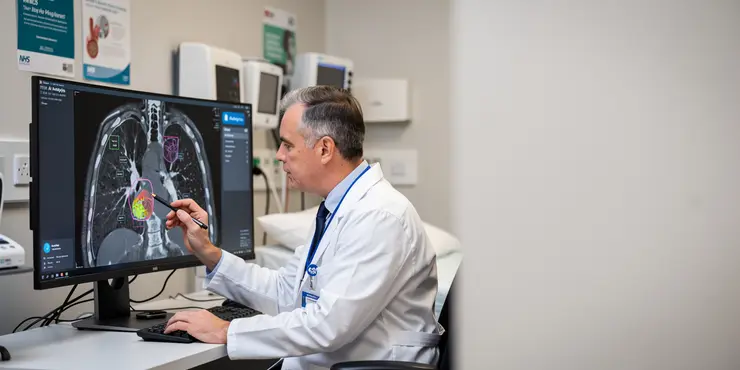
Are AI systems used alone in lung cancer diagnosis or alongside human radiologists?
Relevance: 51%
-
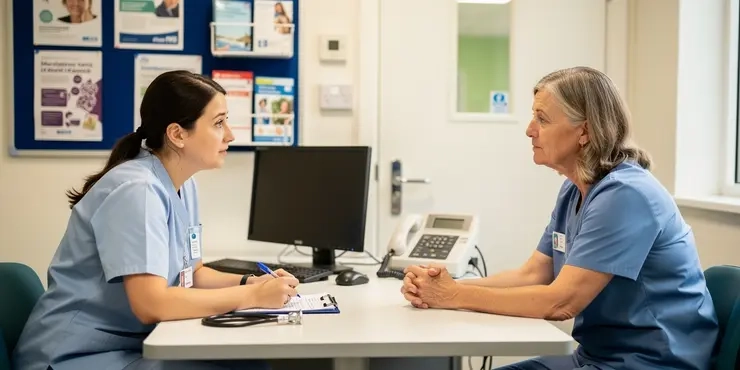
Attention deficit hyperactivity disorder (ADHD) - Diagnosis
Relevance: 50%
-
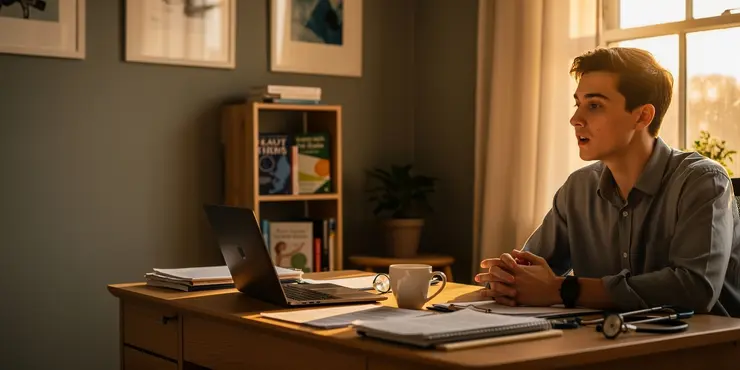
BSL - Diagnosis of obsessive compulsive disorder (OCD)
Relevance: 49%
-
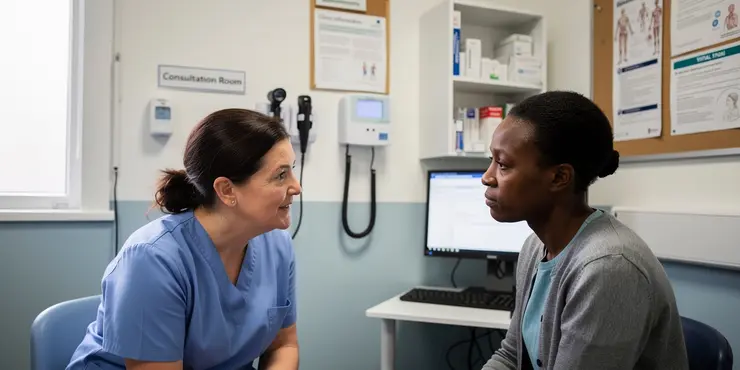
What is the life expectancy after a motor neurone disease diagnosis?
Relevance: 44%
-
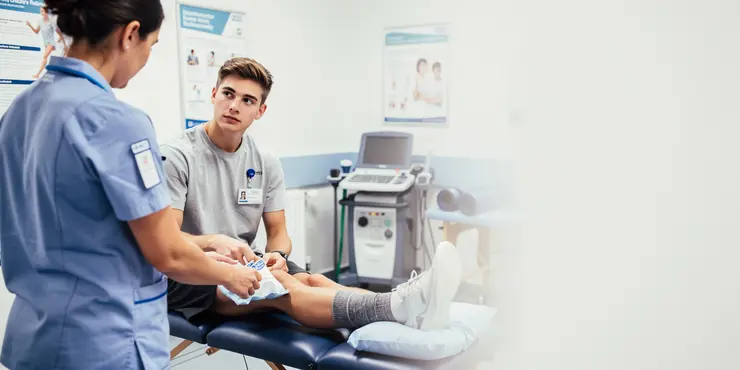
Advice on sports injuries
Relevance: 29%
-
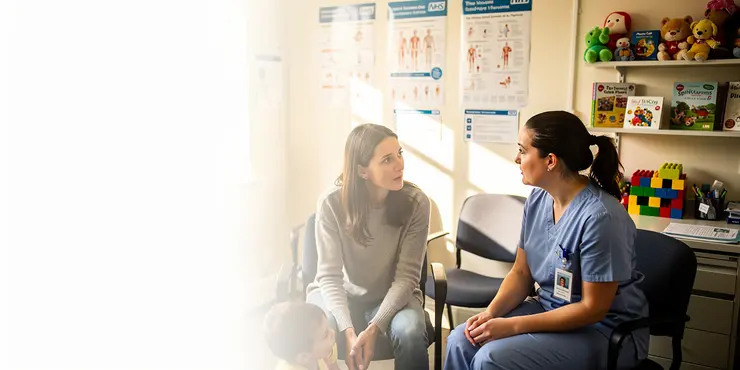
How is autism diagnosed?
Relevance: 21%
Diagnosing a Concussion in the UK
Understanding Concussion Symptoms
Concussions can occur as a result of a blow to the head or a sudden jolt to the body that causes the brain to move rapidly inside the skull. Key symptoms indicative of a concussion include headaches, confusion, dizziness, nausea, balance issues, blurry vision, and sensitivity to light or noise. Emotional changes, such as irritability, are also common. Recognizing these symptoms is vital for both patients and healthcare providers as the first step in the diagnostic process.Initial Assessment by a GP or A&E Department
In the UK, individuals suspected of having a concussion often seek advice from their General Practitioner (GP) or visit an Accident & Emergency (A&E) department. The healthcare professional will conduct a thorough evaluation, which involves reviewing the patient's medical history and the circumstances leading to the injury. They will ask specific questions about the symptoms and perform a physical examination to check for signs of head trauma.Neurological Examination
A crucial component of diagnosing a concussion is the neurological examination. This involves assessing the patient's cognitive functions, coordination, reflexes, and sensory abilities. Tests of short-term memory and concentration are also conducted to evaluate any impact on brain function. These tests help to determine the extent of the injury and any immediate effects on the nervous system.Imaging Tests for Severe Cases
In certain cases, particularly if there are severe or worsening symptoms, imaging tests such as a CT (computed tomography) scan or MRI (magnetic resonance imaging) may be recommended. While a standard concussion does not usually show abnormalities on these scans, they can help detect more serious brain injuries, like bleeding, swelling, or fractures, that require urgent attention.Return-to-Play and School Assessments
For athletes, students, and individuals whose activities are affected by a concussion, a structured assessment is necessary before returning to normal activities. The healthcare provider may use established concussion assessment tools, such as the SCAT5 (Sport Concussion Assessment Tool), to evaluate readiness to resume physical or cognitive activities. A step-by-step return protocol ensures recovery is not compromised.Monitoring and Follow-Up
Diagnosis is just the beginning. Ongoing monitoring and follow-up care are essential to ensure recovery. Patients are advised to rest, both physically and mentally, and gradually return to their daily routines. Regular check-ups may be scheduled to monitor progress and address any persisting symptoms, ensuring a full recovery and preventing further injury.Diagnosing a Concussion in the UK
Understanding Concussion Symptoms
A concussion can happen if you hit your head or if your body is shaken hard. Common signs of a concussion are headaches, feeling confused, dizziness, feeling sick, trouble with balance, blurry eyesight, and not liking bright lights or loud sounds. You might also feel more grumpy than usual. It’s important for people to notice these signs and tell a doctor so they can help.Initial Assessment by a GP or A&E Department
In the UK, if someone thinks they have a concussion, they usually visit their family doctor, called a GP, or go to the hospital’s A&E section. The doctor or nurse will ask about what happened and how the injury occurred. They will also ask about symptoms and check for any signs of damage to your head.Neurological Examination
To help find out if you have a concussion, doctors do a test called a neurological exam. This test checks how your brain is working. They look at how you think, how well you can move, and how your senses, like seeing and touching, are doing. They might also test your memory and how well you can focus. This helps them see how bad the injury is.Imaging Tests for Severe Cases
Sometimes, if your symptoms are very bad or getting worse, the doctor might suggest doing special scans. These are CT or MRI scans. These scans don’t usually show problems from a normal concussion, but they can find serious issues like bleeding or swelling in the brain that need quick treatment.Return-to-Play and School Assessments
Before returning to sports, school, or regular activities, people with a concussion need to be checked carefully. Doctors may use special checklists like the SCAT5 to see if it’s safe to get back to these activities. They follow a step-by-step plan to make sure it’s safe to start active life again without making the injury worse.Monitoring and Follow-Up
Finding out you have a concussion is just the start. You need to be checked regularly to make sure you are getting better. Resting is important. You should take it easy both physically and mentally, then slowly get back to your routine. Having regular check-ins with your doctor helps to make sure you are healing well and to prevent more injuries.Frequently Asked Questions
What is a concussion?
A concussion is a type of traumatic brain injury caused by a bump, blow, or jolt to the head or body that causes the brain to move rapidly inside the skull.
What are the common symptoms of a concussion?
Common symptoms include headache, dizziness, confusion, memory problems, nausea, and sensitivity to light or noise. Some symptoms may not appear immediately.
How is a concussion diagnosed by a medical professional?
A concussion is diagnosed through a clinical assessment by a healthcare professional, which typically includes a physical examination, a check of cognitive function, and a review of symptoms.
Are imaging tests used in concussion diagnosis?
Imaging tests like CT scans or MRIs are not usually needed for diagnosing a concussion unless there are signs of a more serious brain injury.
Do all concussions result in a loss of consciousness?
No, concussions do not always involve a loss of consciousness. Many occur without the person losing consciousness.
What cognitive tests are used in diagnosing a concussion?
Cognitive tests may involve checking orientation (such as asking the date and location), memory (recalling words or events), and concentration (simple tasks like repeating numbers backwards).
Can a concussion be self-diagnosed?
While someone might suspect they have a concussion based on symptoms, it is important to seek evaluation from a healthcare professional for an accurate diagnosis.
Is balance testing a part of concussion diagnosis?
Yes, balance testing is often part of concussion assessments, as concussions can affect a person's balance and coordination.
What role does a medical history play in diagnosing concussions?
A medical history helps professionals understand previous head injuries, underlying conditions, and any medications that may influence symptoms and diagnosis.
Are there specific guidelines doctors follow for diagnosing concussions?
Yes, healthcare professionals often follow guidelines such as the Glasgow Coma Scale and sport-specific protocols like the SCAT5 (Sport Concussion Assessment Tool 5).
Can children be diagnosed with a concussion differently from adults?
Yes, the approach might differ slightly as children may have difficulty communicating symptoms, and age-appropriate assessment tools might be used.
Is observing someone after a head injury part of the diagnostic process?
Yes, observation is crucial as some symptoms of a concussion might develop hours or even days after the initial injury.
Are neurological exams part of diagnosing a concussion?
Yes, neurological exams assess vision, hearing, strength and sensation, coordination, reflexes, and cognitive function to help diagnose a concussion.
What should you do if you suspect a concussion?
If you suspect a concussion, seek medical attention immediately and avoid activities that could lead to another head injury until you have been assessed.
How long does it typically take to diagnose a concussion?
The initial assessment for a concussion can often be completed within a short medical appointment, but follow-ups may be needed to monitor recovery.
What is a concussion?
A concussion is when you hurt your head.
It can make your brain feel funny.
You might feel dizzy or see stars.
If you think you have a concussion, tell an adult.
They can help you go to the doctor.
Drawing a picture of how you feel might help.
Using a timer can remind you to rest.
A concussion is a kind of brain hurt. It happens when your head or body gets hit or shaken really hard. This makes the brain move quickly inside your head.
What signs show someone might have a concussion?
A concussion is when your brain gets hurt.
Here are some signs to look for:
- Headache - their head might hurt.
- Dizziness - they might feel like they are spinning.
- Nausea - they might feel like they want to throw up.
- Confusion - they might feel mixed up.
- Memory problems - they might forget things.
- Sleep problems - they might want to sleep more or less.
You can use pictures to help understand these signs.
If you think someone has a concussion, tell an adult or see a doctor.
Some common signs to look out for are:
- Headache (a pain in your head)
- Dizziness (feeling like you might fall over)
- Confusion (feeling mixed up)
- Problems with memory (forgetting things easily)
- Feeling sick (nausea)
- Sensitivity to light or noise (lights and loud sounds bother you)
Some of these signs might not show up right away.
If you have trouble reading, you can try:
- Reading with a friend or family member
- Using your finger to follow along the words
- Listening to an audiobook
- Using apps or tools that read text out loud
How does a doctor know if you have a concussion?
A doctor can tell if you have a concussion by doing some checks: 1. **Ask Questions:** - The doctor will ask how you got hurt. - They will ask how you feel now. 2. **Look at You:** - The doctor will look at your eyes. - They will check your balance and how you move. 3. **Memory Test:** - The doctor might ask you to remember some words or numbers. 4. **Use Tests:** - Sometimes, doctors use a picture of your brain called a scan. If you feel hurt after a bump on the head, tell an adult. Always see a doctor if you feel dizzy or sick.A concussion is when your brain gets hurt. A doctor can find out if you have a concussion by doing a check-up. They will:
- Look at your body to see how it is working.
- Check how well your brain is thinking.
- Ask about any symptoms you have, like feeling dizzy or having a headache.
If you need help understanding, you can:
- Ask someone to explain it to you in a different way.
- Use pictures to help remember.
Do doctors use pictures of the brain to check for concussion?
We don't usually use big machines like CT scans or MRIs to check for a concussion. We only need them if we think the brain might be hurt really badly.
Do all concussions make you pass out?
No, not all concussions make you pass out. A concussion is a type of head injury. Sometimes, people stay awake after a concussion.
Here are some tips that can help understand better:
- Use simple words.
- Take your time to read.
- Ask someone to read with you.
No, you don't always pass out when you have a concussion. You can have a concussion and stay awake.
What brain tests are used to check for a concussion?
Doctors use brain tests to see if someone has a concussion. A concussion is when your brain gets hurt from a big bump or hit.
Here are some brain tests:
- Questions and answers: The doctor might ask easy questions to see how well you can think and remember.
- Count and remember: You might need to count numbers or remember things like words or pictures.
- Balance tests: The doctor could ask you to stand or walk in a straight line.
You can ask someone to help you understand these tests. If you feel worried or confused, tell the doctor or a friend!
Cognitive tests check how well your brain works. They might ask questions like: "What is today's date?" or "Where are you right now?"
They also test memory by asking you to remember words or things that happened. For concentration, they might give you simple tasks, like saying numbers backwards.
If you find these tests tricky, you can:
- Practice remembering names and numbers.
- Play memory games to help you get better.
- Ask a friend or family member to help you practice.
Can I tell if I have a concussion by myself?
If you think you might have a concussion because of how you feel, it's important to see a doctor to be sure.
Do doctors check your balance to see if you have a concussion?
Yes, doctors check for balance when they think someone might have a concussion. A concussion is a type of head injury. It can make it hard for a person to stay steady and move well.
How does a medical history help doctors find out if someone has a concussion?
A medical history helps doctors learn about any past head bumps, health problems, and medicines you take. This helps them understand your symptoms and find out what is wrong.
How do doctors know if someone has a concussion?
Doctors use special rules to see if a person has hurt their head.
They look for certain signs like the person feeling dizzy or confused.
If you bump your head, tell a grown-up or doctor.
Apps and tools like pictures or simple checklists can help you understand more.
Yes, doctors and nurses use special rules. They use the Glasgow Coma Scale and a test for sports called SCAT5. This helps them check if someone has a concussion.
Do doctors check for concussions in kids in a different way than in grown-ups?
Yes, the way we check kids can be a little different. Kids might find it hard to say how they feel. We use special tools that are just right for their age to help us understand.
Do doctors watch people after a head bump to find out what's wrong?
Yes, watching carefully is very important because some signs of a concussion can show up hours or even days after getting hurt.
Do doctors check the brain when they think someone has a concussion?
Yes, doctors do special tests to check your brain. They look at how you see, hear, and feel things. They also check how strong you are, how you move, and how fast you react. This helps them know if someone has hurt their head, like with a bump or bang.
To make understanding easier, you can use tools like picture cards or get help from someone you trust. Breaking information into small steps can also help.
What to do if you think someone has a concussion?
If you think someone has a concussion, get help from a doctor right away. Do not do anything that might hurt your head again until a doctor checks you.
How long does it usually take to know if someone has a concussion?
If you hurt your head, a doctor can help you find out if you have a concussion. This might take some time.
Here are some helpful tips:
- Be patient: It might take a few hours or even a day for the doctor to be sure.
- Tell the doctor everything: Say if you feel dizzy, sick, or have a headache.
- Tools that help: Doctors might use special tests, like asking questions or checking your eyes and balance.
Getting better also takes time. Rest and listening to the doctor’s advice can help you heal.
A doctor can check for a concussion in a short visit. You might need to go back to the doctor to see how you are getting better.
Useful Links
This website offers general information and is not a substitute for professional advice.
Always seek guidance from qualified professionals.
If you have any medical concerns or need urgent help, contact a healthcare professional or emergency services immediately.
Some of this content was generated with AI assistance. We’ve done our best to keep it accurate, helpful, and human-friendly.
- Ergsy carfully checks the information in the videos we provide here.
- Videos shown by Youtube after a video has completed, have NOT been reviewed by ERGSY.
- To view, click the arrow in centre of video.
- Most of the videos you find here will have subtitles and/or closed captions available.
- You may need to turn these on, and choose your preferred language.
- Go to the video you'd like to watch.
- If closed captions (CC) are available, settings will be visible on the bottom right of the video player.
- To turn on Captions, click settings .
- To turn off Captions, click settings again.
More Items From Ergsy search
-

How is a concussion diagnosed?
Relevance: 100%
-

How is a concussion diagnosed?
Relevance: 97%
-

What is Concussion?
Relevance: 93%
-

Is headache a symptom of a concussion?
Relevance: 87%
-

Are children more susceptible to concussions than adults?
Relevance: 84%
-

Are Concussions common in Rugby?
Relevance: 83%
-

What are common symptoms of a concussion?
Relevance: 83%
-

Can concussions occur without a direct blow to the head?
Relevance: 83%
-

How can concussions be prevented in rugby?
Relevance: 82%
-

How can concussions be prevented?
Relevance: 80%
-

What causes concussions in rugby?
Relevance: 80%
-

Is there any way to prevent concussions?
Relevance: 80%
-

How can concussions be prevented?
Relevance: 80%
-

Is there a protocol for managing concussions in rugby?
Relevance: 79%
-

Is it safe to sleep after a concussion?
Relevance: 79%
-

Is it safe to sleep after a concussion?
Relevance: 79%
-

Are helmets required in rugby to prevent concussions?
Relevance: 77%
-

Can a concussion cause memory problems?
Relevance: 77%
-

When is it safe to return to normal activities after a concussion?
Relevance: 76%
-

Can concussions lead to mental health issues?
Relevance: 75%
-

Is training available for coaches to help prevent concussions?
Relevance: 75%
-

What role do schools play in managing concussions?
Relevance: 75%
-

Can playing sports increase the risk of a concussion?
Relevance: 74%
-

Is there a difference in concussion rates between amateur and professional rugby?
Relevance: 74%
-

How do concussions impact long-term health in rugby players?
Relevance: 73%
-

Should people with a concussion avoid screens and technology?
Relevance: 72%
-

What age groups are most at risk for concussions in rugby?
Relevance: 72%
-

What support is available for rugby players who suffer concussions?
Relevance: 70%
-

When is it safe to return to normal activities after a concussion?
Relevance: 70%
-

What immediate steps should be taken if someone has a concussion?
Relevance: 69%
-

Can players return to play on the same day after a suspected concussion?
Relevance: 69%
-

Prostate cancer diagnosis and tests
Relevance: 55%
-

BSL - Diagnosis of panic disorder
Relevance: 54%
-

Head and Neck Cancer Diagnosis
Relevance: 54%
-

Are AI systems used alone in lung cancer diagnosis or alongside human radiologists?
Relevance: 51%
-

Attention deficit hyperactivity disorder (ADHD) - Diagnosis
Relevance: 50%
-

BSL - Diagnosis of obsessive compulsive disorder (OCD)
Relevance: 49%
-

What is the life expectancy after a motor neurone disease diagnosis?
Relevance: 44%
-

Advice on sports injuries
Relevance: 29%
-

How is autism diagnosed?
Relevance: 21%


